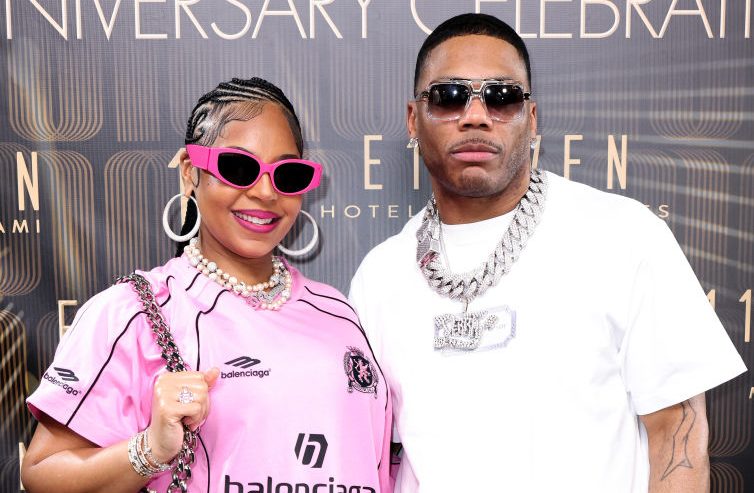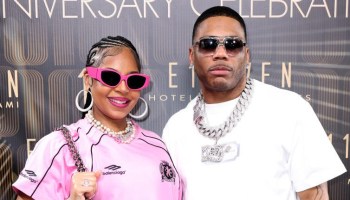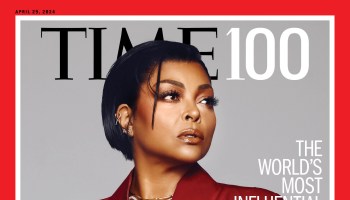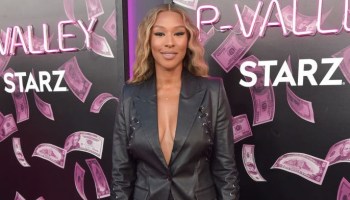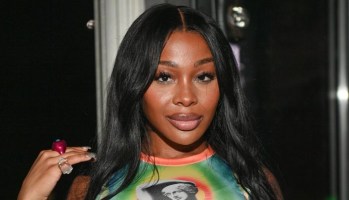Soffiyah Elijah, a former criminal defense lawyer and Harvard Law professor, has made her life’s work to evoke change through legislation that directly pertains to criminal justice reform.
In 2011, Elijah became the first Black woman to head the Correctional Association of New York, a nonprofit organization with a legislative mandate to monitor prison conditions throughout New York state. In 2016, she left to form the Alliance of Families for Justice–a Harlem based organization where she serves as the executive director.
Elijah is also an important member of two New York based task forces focused on criminal justice reform–Governor Andrew Cuomo‘s Re-Entry Council and Mayor Bill de Blasio’s Implemention Task Force to close Riker’s Island.
Over the course of the next year, the AFJNY plans to organize and arrange a series of free workshops and conferences for families who have been impacted by mass incarceration in conjunction with the Omega Institute. The workshops will be held in New York regions where a number of prison hubs are concentrated.
HelloBeautiful staff writer Charise Frazier sat down Elijah to discuss what’s at stake in criminal justice reform conversation, the very public cases of Meek Mill, Cyntoia Brown, Bresha Meadows and AliceJohnson, and New York gubernatorial candidate Cynthia Nixon‘s suggestion that the booming marijuana enterprise could be used as a form of reparations in Black and brown communities.
HelloBeautiful: Thank you for speaking with me today, I greatly appreciate you taking the time out of your schedule. I was wondering if you could tell me about the alliance and the work that is your focus?
Soffiyah Elijah: We empower and mobilize families who have incarcerated loved ones and people who have a criminal record. We provide them with services, trainings and educational opportunities that enables them to marshal their own collective power in voting efforts to bring about the kind of changes that they want to see in their community.
HB: How did you come to be involved in the organization?
SE: I’m a criminal defense lawyer by training, have been for over 30 years, and I’ve also been an activist actually since long before I went to law school. I had an opportunity to see first hand, not just professionally, but also personally, the impact of mass incarceration on poor Black and brown communities throughout this country. And as a result I decided after finishing teaching criminal defense for 12 years at Harvard Law School, that it was time to transition into taking on systemic change and that’s when I entered the non-profit world.
HB: What specific programming does the Alliance offer?
SE: We start with providing a listening and empathetic ear to anyone who’s been directly impacted by incarceration. What we have found is in our society the experience of being incarcerated leaves people horribly stigmatized and as a result not having any place to turn or nobody to talk to about that experience. We provide access to quality legal representation and also help people navigate the system with respect to human rights violations that they or their loved one have experienced while they were incarcerated. We also provide training in communication skills and advocacy skills so that people are able to do interviews where they can be their first line voices for their own experiences and the change that they want to see happen. And last but not least, provide voting education and voter registration so that we can encourage and mobilize the people who have been impacted by this system to unmask their voting power.
HB: Can you talk about the rising number of Black women and women of color being jailed? Because you work closely with families, I wanted to know how that greatly impacts the children.
SE: All the family members do time when their loved ones go to prison. The impact is felt by everyone and obviously there’s been quite a bit of attention on the children who are left behind and similarly, growing attention is being focused on women. The numbers if you look at say for instance, New York state incarcerates about 50,000 people, less than 2,000 of that 50,000 are women and the rest are men. The men of color—Black and brown–make up the overwhelming majority of the population and therefore most of the narratives have focused on them and has left out women. I don’t think it’s a wise organizing strategy to pit one parent’s incarceration against another parent’s incarceration because the children feel the absence of the parent no matter what. And so at the Alliance we focus holistically on everyone that’s impacted from the child, to the both parents, to the grandparents, to the extended family.
HB: You have advocated for Meek Mill who has now become a central figure/face of jail reform. What does his case do for the argument against mass incarceration?
SE: I think that Meek Mill obviously like any other celebrity figure when their lives intersect with the criminal justice system, more attention is brought to the issues that surround their case. The simple issue around Mill’s case was technical probation or technical parole violations which the judge kept lengthening the sentence every time he picked up another technical violation—by that I mean that he didn’t get convicted of another crime but he was alleged to have violated technical violations or a curfew violation. I think it draws a lot of attention to the fact that our society is hooked on punishment and that our default response is to put somebody in a cage as opposed to understanding what their circumstances are and how can hey be given the support to become fully contributing members of society. Meek Mill’s situation also highlights how our society is all too comfortable with putting Black men in cages–which kind of goes back to the point that I was making earlier—that Black men being incarcerated are such a marginalized accepted reality in society that we almost have become blinded and numb to it. I think Meek Mill’s story helps to highlight that reality. But I’m also not naïve about the fact that but for the enormous support that Meek Mill received from Jay-Z, Meek Mill would still be behind bars.
I was invited to be on a [RocNation] panel discussion with Angelo Pinto who I’ve known for a number of years—we used to work together at the correctional association—and Angelo, along with The Advancement Project and a number of other organizations, came together in Philadelphia and had a forum on mass incarceration and a separate piece of it was Meek Mill’s situation and a call for him to be released. So I had an opportunity to speak on the final panel with my work on trying to end mass incarceration and the particulars that impacted Meek Mill’s case.
HB: Do you think Meek Mill has a responsibility to speak out on his situation as a member of the public and as a Black man who has come face to face with the jail system?
SE: I should start with saying that I don’t ever pass judgment as far as what people decided to do as far as advocacy regarding prison. Prison is a horribly traumatic experience. And I think it’s a very individualized and personalized decision, what someone decides to do when they come home. Many people come out of prison and they say that they don’t forget the people that they left behind and that they want to be involved in the advocacy realm. The reality is just trying make it day-to-day particularly with having the stigma of being formerly incarcerated, makes it extremely difficult for the majority of the people who make that commitment to actually follow through with it. Meek Mill obviously has the support of the family and a job, he’s obviously not going to be unemployed because of his prior incarceration, so he has a softer landing pad than many people, but that doesn’t mean that incarceration didn’t have an impact on him.
I respect his and everyone else’s right to take the time they need to heal from that experience. And the need for healing isn’t always obvious when someone first comes home. It may not show up for years later. But anyone who’s experienced trauma that they don’t get treatment for, sooner or later the impact of that trauma is going to manifest itself. So I am hopeful that Meek Mill is gentle enough with himself to give himself the time to heal from that experience. It’s even harder as a celebrity and it’s compounded by the fact that most men don’t admit the need for counseling or therapy. And it’s taboo in our community, but the reality is anybody who’s gone through trauma ought to be given the opportunity to heal with the assistance of therapy. I would add, the fact that someone who enjoys celebrity status does not necessarily mean that they are steeped in the research and the issues that has impacted their lives. We’ve seen this time and time again. Unless you’re going to really take the time to delve into the issue—because it’s beyond your lived experience–to understand what is happening systemically and societally and on an international and national basis before you step out there as a self-appointed or recruited spokesperson on the issue.
HB: There are also are many high-profile cases involving women of color – Bresha Meadows, the young teen who killed her alleged abusive father, Cyntoia Brown–-a victim of child sex trafficking who killed one of her abusers, Alice Marie Johnson – jailed 22 years ago for a first time non-violent drug offense. A lot of the times these stories are hidden from the limelight because they involve everyday women but only get major pick up when celebrities are involved?
SE: Their cases unfortunately are commonplace. There are thousands and thousands of people—let me correct that. There are millions of people who have been sent to prison in instances where the availability of alternatives to incarceration and a changed mindset of perpetual punishment could have resulted in them not being found guilty for the charges in which they were convicted. Coupled with that is that many people plead guilty to avoid the risk of a harsher longer sentence. But I’m also clear that in order to bring about long-lasting change in this system, we have to push the narrative that people don’t belong in cages. That has to really be our starting point and we can’t make the distinction of “well this person belongs in a cage, but that person doesn’t.”
And we live in a society that for at least 400 years hasn’t done very well in addressing it’s racism. And that racism plays out in every single stage of the criminal justice system. And so if we buy into a narrative that says, “non-violent drug offenders shouldn’t be incarcerated or people who’ve been convicted of a non-violent offense and everybody else should,” what we will see is that discretion that prosecutor and cops and judges have, coupled with the systemic racism that permeates every molecule in the air of this country, will result in more and more Black and brown people being charged as violent offenders and incarcerated for violent offenses and therefore the non-violent drug offender exception will be used for primarily white drug users and everybody else—who at least looks like me–will find themselves in a cage still. And so what the cases of Ms. Meadows, Ms. Brown and Ms. Johnson highlight to me is that the horrific circumstances to bring any individual into a court room charged with violating the law should always be in the forefront of a judges mind when making the decision about their liberty.
HB: The frustration that many feel is that we know we must keep having these conversations, but what can we as citizens do to legally help spur this reform?
SE: At the risk of sounding cliché, we should use our right to vote. And just recently in New York, Governor Cuomo announced he would use his executive power to conditionally pardon anyone who was on parole for the purpose of allowing them to register to vote. There’s about 35,000 people in New York state right now who are on parole and they should stampede to register to vote as soon as their name comes up on a list from their p.o. And the other thing that we should all do is advocate that the right to vote should never be taken away. There’s states where people who are incarcerated are allowed to vote–the sky didn’t fall there and I suspect it won’t fall in New York either, so if we could get who are most directly impacted to be able to exercise their voting power, those elected officials who continue to function in a way that’s unethical to Black and Latino people will not be in office and they will not be able to pass the kind of measure they pass and they won’t be able to block progressive criminal justice reform because they wouldn’t be in office. I think we need to heighten the narrative on what’s really going on and not allow the hypocritical system to be able to throw smoke and mirrors in the faces of people.
HB: Another topic that I’d like to discuss is decriminalizing marijuana because as we know the arrests for marijuana possession and distribution disproportionately affect Black men and women. Cynthia Nixon who is running for governor recently wrote an op-ed that suggests marijuana could actually be enterprising for communities of color–suggesting it could be a form of reparations. This has caused sort of schism in the Black community between those who disagree and who see some validity in what Nixon is proposing. I wanted to know your thoughts on this.
SE: Well let me separate the issues. I’ve been deeply involved for the reparations movement and an advocate of that since law school. So we’re talking in the 70’s. The work around reparations was never tied to Black people being able to sell marijuana. So I understand what Cynthia Nixon is advocating, I don’t think it was a wise strategic move to mix the concept of legalizing marijuana and creating entrepreneurial opportunities with respect to that and reparations. Reparations goes far deeper in this country than whether or not I get to sell a dime bag of weed.
I would say this, I am probably a member of that older generation you referenced and I don’t have a problem at all with entrepreneurial opportunities being made equally available and particularly if some brother has shown that he’s really good at being able to sell something whether it’s a car or a dime bag of weed, why should he be blocked from going into that business? There was a time when alcohol was deemed illegal in this country and Black and white people stared making alcohol at home and that with a push from white people became legal. So it really highlights that a person in power decides what’s illegal and legal. So I applaud Cynthia Nixon for her attempt to draw that issue out, I just think that she made a strategic mistake trying to wrap reparations into that.
(Editor’s note: This interview has been condensed and edited for clarity.)
DON’T MISS:
Black Woman On Macy’s Clerk Wrongly Accusing Her Of Shoplifting: ‘I Feel So Humiliated’
Nigerian Woman Kicked Off United Airline Flight After White Passenger Complained Over ‘Pungent’ Odor
